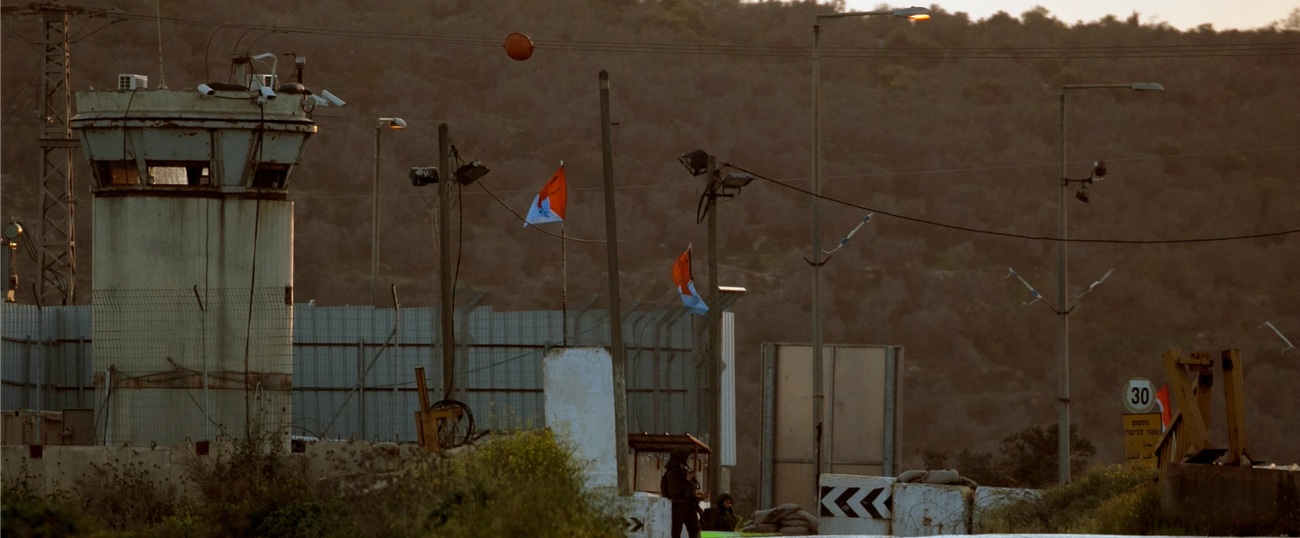Brexit Is Britain’s West Bank
Like the West Bank in Israeli politics, Brexit presents the British with a hopeless dilemma




Maybe it was the now unbearably hot summers in London that should have tipped me off. Maybe it was when coalition governments came back into fashion. Whatever the tipping point was, British politics have suddenly become very familiar. British politics have become Israeli politics. Brexit is Britain’s West Bank.
Like the role of the West Bank in Israeli politics, Brexit presents the people of Britain with a hopeless dilemma. It is so hopeless that over time it will become an issue that dominates political life and subordinates all other issues, however pressing, to its perverse logic, while pushing off the agenda all other urgent matters until it can be resolved. The debate over Brexit will hollow out political discussion for a generation and weed out talented people from political life. Are you ready?
Here is how the issue of the West Bank unfolded in Israeli politics. See if you can spot the differences: Israel’s lightning victory in the Six-Day War presented it with a giant dilemma. The dilemma and its magnitude were obvious already on the morning after the war ended in June 1967. It hasn’t changed a great deal since. Staying in the West Bank meant ruling over a foreign population that did not wish to be so ruled and risking Israel’s status as a democracy or as a Jewish state—or both. Leaving the West Bank meant forgoing ancestral territory that had been won in a just war of defense and taking an enormous security risk in a very hostile regional environment.
Fifty years on, everything has changed except the essential dilemma. Superpowers came to the region and then left; the Cold War heated up and then ended; the Jordanian option closed, but the Palestinian option opened up; Islamism ascended in the region and challenged old nationalist and socialist ideologies; and hundreds of thousands of Israelis settled in the West Bank. But Israel’s options in the West Bank are still a question of ranking all the bad options and picking among the least bad ones—or, to date, not picking anything at all.
The 2016 Brexit referendum also left Britain with no good choices. Both a “hard” and “soft” Brexit have obvious drawbacks without any clear advantages. Stay in the customs union, and you have all the burdens of membership without being able to influence decisions. What would be gained by that besides placating an angry public and making everyone poorer?
Other options look even worse. A second referendum before negotiating a settlement with the EU risks being perceived as anti-democratic. A referendum after a Brexit agreement is even riskier: what happens if it fails? Any government that tried to simply ignore the result of the 2016 referendum would face the wrath of the public. Leaving the EU with no agreement could be economically dislocating for decades.
The same way the controversy over the West Bank enveloped and then accentuated every existing political cleavage in Israel—religious, ethnic, ideological, economic—Brexit threatens to do the same. It has already pulled into its vortex the fragile peace in Northern Ireland and the question of Scotland and the Union. It is at the center of every possible social division, including some that haven’t even been thought of yet.
In such a condition, where one issue dominates public discourse and politics, and when all options are bad, there are only two kinds of politicians who can succeed. The first kind are the charlatans. Those are the cynics who prepare two editorials on the eve of the vote waiting to see which one suits their narrow interests best. The second kind are the fools, those stupid enough to believe their own empty slogans.
Mediocrity and mendacity will reign, whether by selection or process. Some political actors will be born mediocrities, others will have it thrust upon them. Decent, thoughtful leaders will either be worn down into accepting the shibboleths of an unwinnable debate in an unsolvable conundrum or they will leave to direct museums, start technology firms, or pursue their interests abroad.
There are, of course, a few differences between the West Bank and Brexit. The first is that the deep chasm that opened up in Israeli politics as a result of the occupation was reflected in available choices at the ballot box. In Britain, this has not been the case. In the most recent General Election in 2017, neither of the two major parties campaigned on a rejection of Brexit, even though 48% of the British public voted against it in the referendum one year before. In a functioning parliamentary democracy, UKIP should have had to do the hard work of winning a large number of constituencies, if not an outright majority, to see its agenda through. Instead, their work has been done insincerely, unwittingly, and incompetently, by others. And a change in parliamentary majority in the next general election won’t change the straitened choices facing Britain’s people or its leadership.
The second difference is even more sobering. However disastrous winning the war in 1967 has been for Israel, losing it would have been worse. Israelis had no real choice. But Britain, in its hour of reckoning, did. The referendum, part dare, part prank, and all a fit of absence of mind, was an entirely unnecessary own goal.
It came only one year after an equally reckless fit nearly brought Britain to unilaterally redraw its own borders and repeal the 1707 Act of Union. That this peril was narrowly avoided in a referendum in which, bizarrely, 94 percent of Britons were excluded from participating, should have stayed the hands of Britain’s thrill-seeking elites.
But it did the opposite. And now we are all stuck with the dismal consequences of this act. Welcome to Israel, Britain. At least the weather is nice.
Shany Mor is an Associate Fellow at the Hannah Arendt Center at Bard College and a Research Fellow at the Chaikin Center for Geostrategy at the University of Haifa. He served as a Director for Foreign Policy on the Israeli National Security Council.